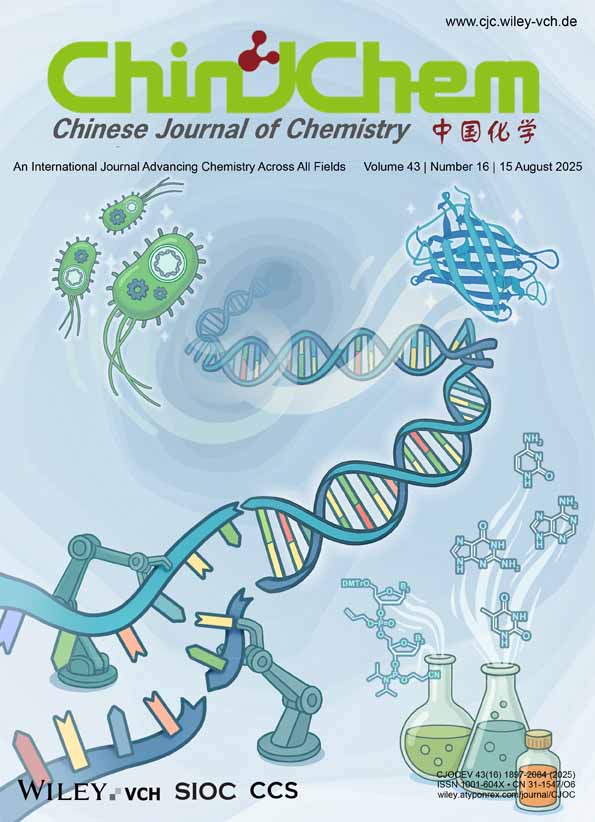N-Chlorosuccinimide (NCS): A Novel Initiator for Atom Transfer Radical Polymerization of Methyl Methacrylate†
Abstract
Atom transfer radical polymerization (ATRP) of methyl methacrylate (MMA) was achieved, using N-chloro-succinimide (NCS) as an initiator together with catalytic system CuCl/PMDETA (N,N,N′,N′,N′′-pentamethyldiethyl-enetriamine), CuCl/MA5-DETA (N,N,N′,N′,N′′-penta(methylacrylate)diethylenetriamine), and CuCl/bipy (bipy2,2′-bipyridyl) respectively. The results indicated that the polymerization possessed typical controlled/living radical polymerization characteristics. The analysis for terminal group of obtained polymer by 1H NMR proved that NCS is an initiator for ATRP. In comparison with NBS, the polymerization rate was slower and the resulted polymer had narrower molecular weight distribution (MWD) when NCS was employed as the initiator.




